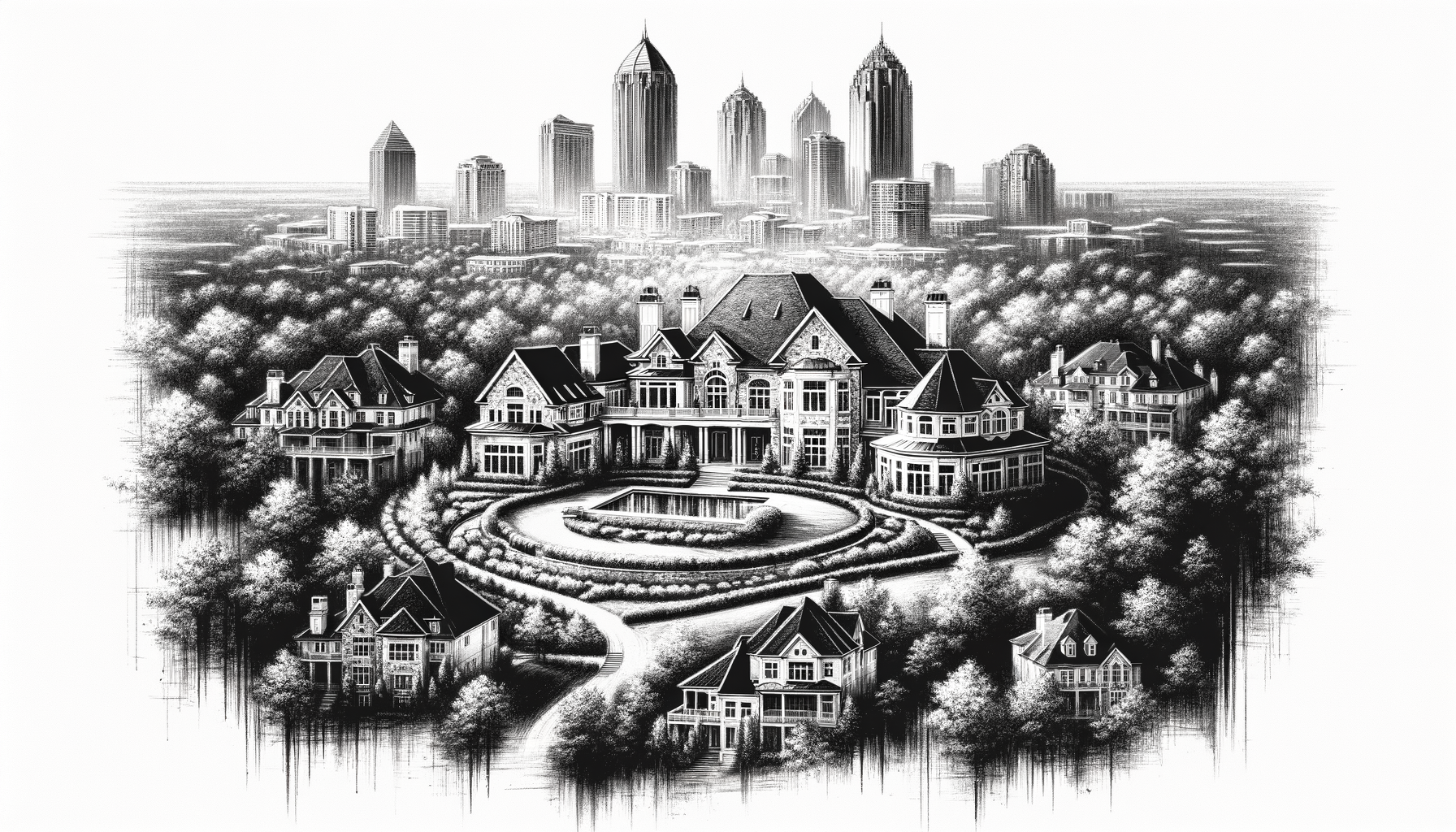Home is a four-letter word that carries more baggage than any ex I’ve ever had. Growing up in Atlanta’s Buckhead neighborhood, “home” was a meticulously trimmed azalea bush, a nod from the valet at the country club, and the smell of fresh paint in rooms no one ever dared to use. It was southern tradition woven seamlessly into a cosmopolitan sheen—a place that offered every privilege but managed to feel just a little too perfect. Like that one date who ticks every box on paper but leaves you wondering if there’s anything beneath the surface.
But my love for Atlanta? Oh, it’s real. And complicated. Think Ross and Rachel, pre-final season.
Let me explain.
The Southern Belle Bubble
Buckhead was the kind of neighborhood where people didn’t just wave; they knew who catered your last garden party (and how your chicken salad measured up). My childhood felt like a curated Instagram feed come to life: picture-perfect front porches, Lilly Pulitzer dresses at church, and sweet tea so sugary it practically caramelized your insides. For a long time, I thought this was "normal." Doesn't everyone's block throw a champagne toast when a new family has their kitchen remodeled?
But alongside the monogrammed cocktail napkins came unspoken rules. Keep your voice soft, your hair shinier than Bobby Jones’ trophies, and your shoulders back at every charity gala. When I was a teenager, I learned quickly that “familiarity breeds comfort” only applies if you’re seamless about blending in. Being “different” meant side-eyes at debutante balls or gentle (read: crushing) reminders about the “right” kind of people to associate with.
As much as I loved the twinkling fairy lights and the charm of Buckhead tradition, I couldn’t help wanting something more. Some authenticity beneath the gloss.
Can You Outgrow Home?
For a while, I believed the only option was to run far, far away. During my year abroad in London, I developed a deep love affair with anonymity. No one cared who my parents were or which art show I attended last weekend, and that freedom was intoxicating. There, I could be unapologetically myself—an “outsider” with no history to carry or expectations to meet. It was a revelation. (Also: pub curries beat out sweet tea every time. Sorry not sorry.)
But absence makes the heart do funny things. I started to miss Atlanta, or at least the spirit of it. The way neighbors would stop on the sidewalk to chat about their azaleas or your mama’s pecan pie. The celebratory fuss around anything, from securing a promotion to adopting a rescue labradoodle. Everything in London felt stark by comparison—so much black, so little hospitality.
When I moved back to Atlanta, I thought I’d find home exactly as I left it. In some ways, I did. My parents’ street still smelled like honeysuckle in the spring; the cafes I’d frequented still served pitiful decaf lattes. But I’d changed. It was a strange reunion, like bumping into an old flame: bittersweet and awkwardly familiar.
Lessons from Dating Your Hometown
Thinking about home as a relationship helped me better understand my mixed feelings. Growing up in Buckhead was like being in a long-term relationship with someone who’s trustworthy, but a little smug about always knowing what’s “best” for you. They might have given you security and structure, but eventually, you begin to notice the cracks—or maybe you just grow tired of being cast in the same role. So what do you do? You try to “break up” by moving away, thinking you’ll find somewhere—or someone—better.
But if my time in Atlanta has taught me anything, it’s this: You don’t have to run from a relationship just because it isn’t perfect. You can outgrow parts of it, critique it, even laugh at its quirks. And yet, you can still honor its place in your story.
For anyone out there who feels a similar push-and-pull with where they grew up, here are a few takeaways that helped me come to terms with my love/hate relationship with home—and maybe they’ll help you, too.
1. Accept the Messiness
It’s okay to have complicated feelings about where you grew up. Love and hate aren’t opposites; they’re dance partners. Where your hometown shines, allow yourself to feel nostalgia. Where it falters, feel free to call it out. The two emotions can coexist without canceling each other out.
2. Embrace Growth
Moving back doesn’t mean reverting to your childhood self. Think of it like getting back with an ex after both of you have done some personal growth. You’re coming into this “relationship” older, wiser, and with boundaries (no more letting societal expectations dictate your every move).
3. Find the Balance
You don’t have to accept everything about your hometown to find joy there. For me, that looks like skipping the summer social-club circuit but still stopping by my favorite corner bakery for fresh blueberry muffins and a chat about SEC football with its owner. Curate your connection; you’re in control.
4. Make New Memories
As much as Buckhead reminds me of my debutante-ball past, I’ve learned to actively create my own vision of home. I’ve discovered quirky, beloved community theaters and low-key live music nights that let me blend my Southern roots with the cosmopolitan arts scene I fell in love with abroad. Finding pieces of my interests within my hometown gives me a sense of belonging.
With Love, From Atlanta
Today, I no longer think of Atlanta as the place where I spent summers chasing after the idea of an immaculate life. Instead, it’s a patchwork quilt of experiences that reflect where I’ve been: a reminder of the charm that raised me and the grit I’ve added along the way. Buckhead taught me how to connect with people, appreciate beauty (even if it’s wrapped in seersucker), and navigate both privilege and tradition with my own cautious optimism.
And isn’t that what we’re all really looking for—whether it’s in a city, a romance, or a version of ourselves? A way to embrace the contradictions. A love story that feels like home, even when it’s a little messy.




















